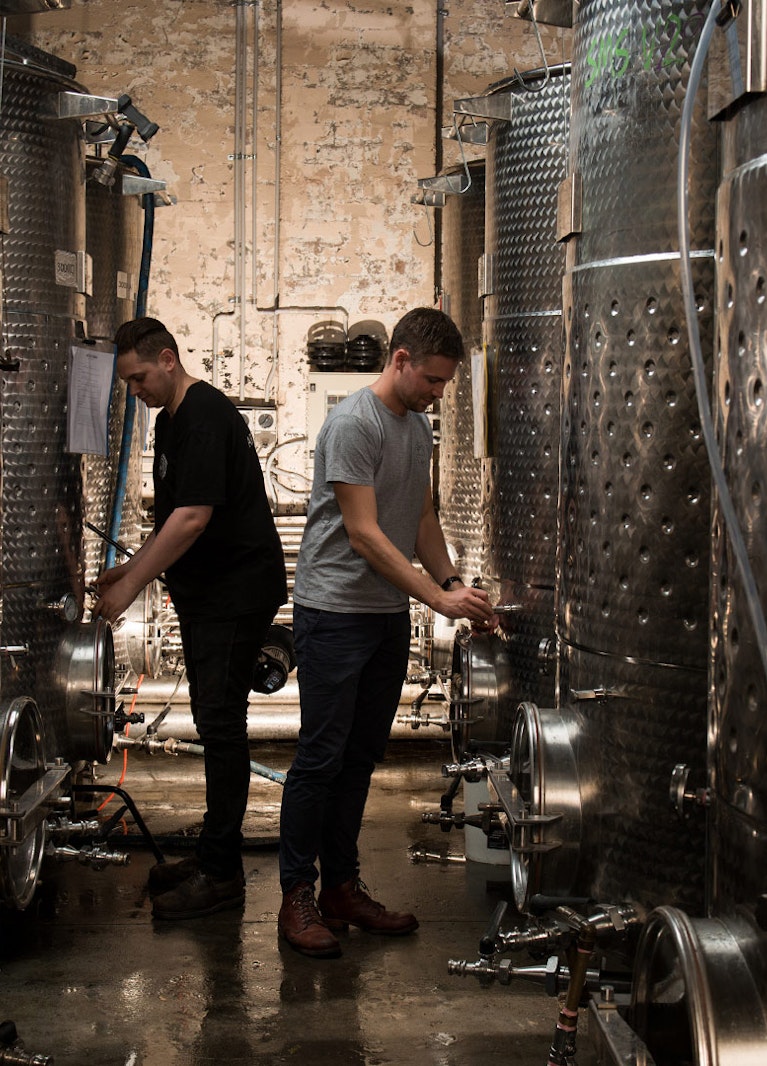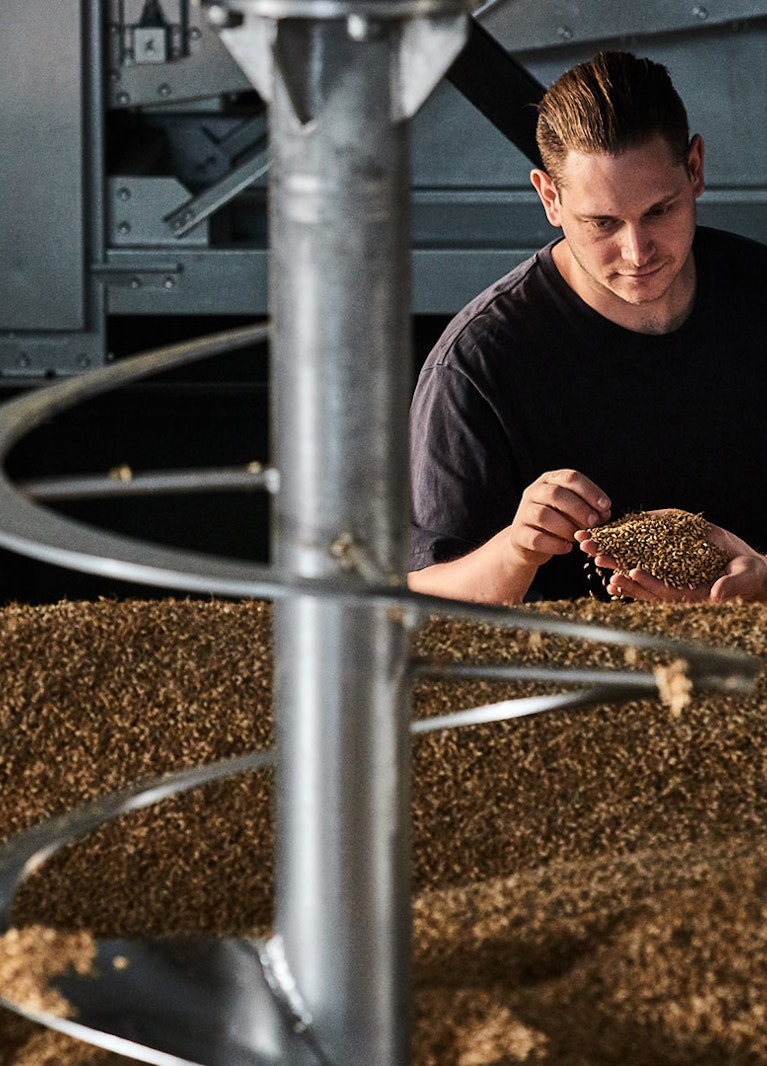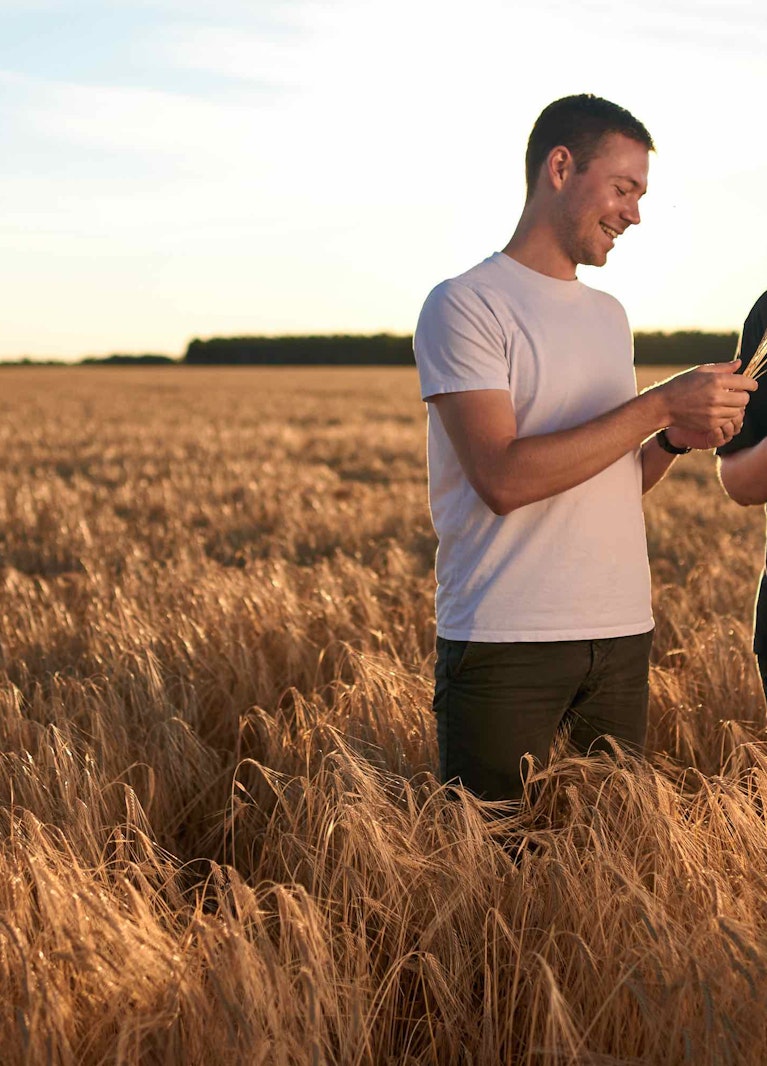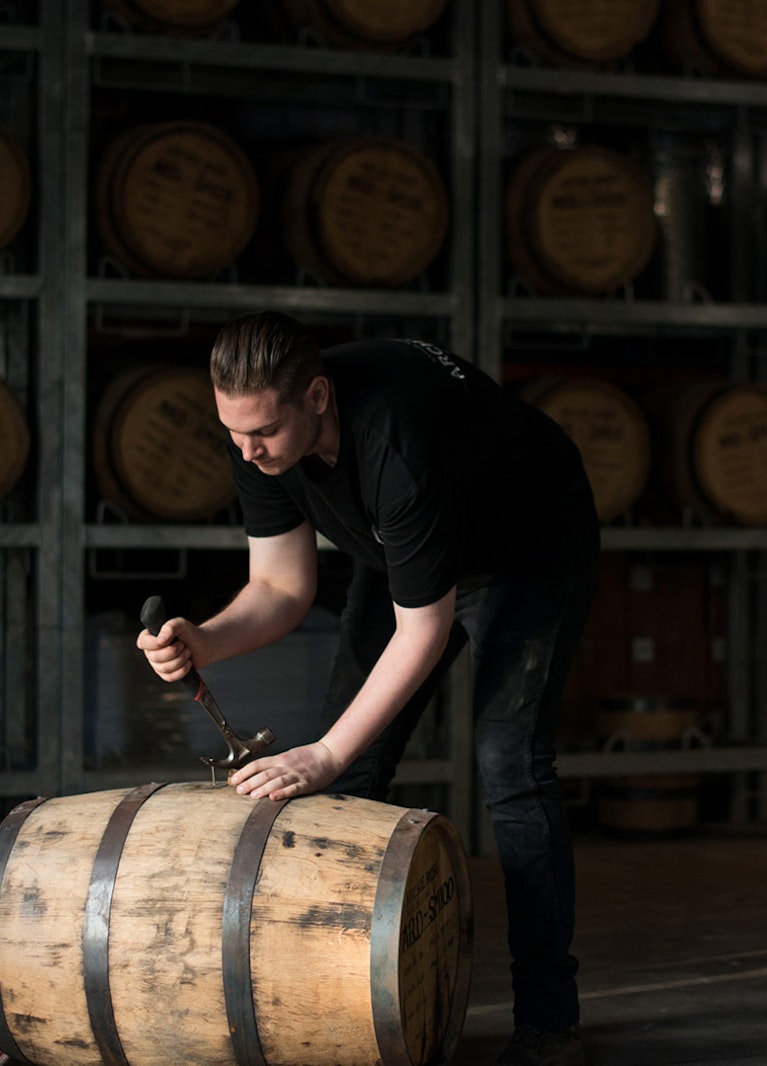Our Journey To Whisky, with Will Edwards and Dave Withers
It’s been almost six years since we first began whisky production at the Archie Rose Distillery in Rosebery, Sydney. We brought together our Founder Will Edwards and Master Distiller Dave Withers to reflect on the past, present and future—from our nation’s whisky history to unpacking two years of R&D, what we mean by ‘meaningful innovation,’ and cementing our long-term vision of creating exceptional Australian whisky.

Back to the beginning
Will: From day one, I knew I wanted to make gins and whiskies; and within the whisky category, specifically, I was always really keen to make a rye and a single malt. Though what many of you may not know is that while we began making our first gins, we were also laying down our first brews and casks—all the way back in early 2015.
To be honest, we definitely thought this Single Malt Whisky was going to be ready a little sooner. I remember chatting to you Dave and thinking, okay, we'll probably get our first Single Malt out in early 2019. Ambitious, at best. But here’s what happened: firstly, the stock took a little longer to mature than we were expecting—which was good—because with Australia’s climate, you’re often battling a maturation that is too quick, and it means that your margins for error are quite small. So that longer period gave us crucial breathing room.
Why patience became a key ingredient
Will: When we started producing our Single Malt Whisky, we initially took a traditional approach. It was pretty in line with what was happening in Australia at that time and, technically, not very innovative at all. We did this intentionally: it was all about laying down our foundations, in order to minimise as many variables as possible, from equipment to climate. All up that went for about six months. Once we had a handle on that, it became a completely different ball game. We were able to go back to the start with fresh eyes and a great real sense of what was going to work. Then began an 18-month process of pure research and development, trials and experiments.
Dave: That’s right, we carried out a lot of trials. We were guided by innovation and flavour on the one end and, on the other, efficiency and yield and all the other things that make the accountants happy. It's also about respect, right? If it took a farmer a whole year to grow the grain, or if it took a barrel 30-years in a winery to make it into your hands, the least you can do is take the time and care, to get the best flavour and character out of that ingredient as you can.
Will: Respect for ingredients has always been at the heart of what we do. What we also talk about a lot is ‘meaningful innovation.’ We’re not trying to do something different so we can talk about it on a box or website. If an old process already works, we’re not going to change it, but we’re also focused on taking the time to test and iterate and to find a better way.

From tradition to innovation: a new age of Australian whisky
Dave: Australian whisky has a really long, really fascinating history. It's actually something we don't talk about a lot, or nearly enough. We're lucky in Australia to have a relatively long tradition to draw on. On the other hand as a nation, we’re also quite free, and not so constrained by a single idea of what a local Australian whisky should be. It's more about what an Australian whisky could be. At Archie Rose, we really take that idea to heart.
Will: For most of our whisky history here in Australia, we were in a way trying to emulate Scotland as best as we could. Our vision though was to produce in a way that was right for our land and our climate and to showcase the incredible ingredients that you can’t get anywhere else in the world. We also wanted to try and challenge, where it made sense to, some of the traditional ways of producing whisky because we didn't have the same historical restraints or stricter legislations you find in the US or the UK.
Dave: To that point, it was legal to distil in Australia before it was even legal to distil in Scotland. Also before there was an income tax, there was a tax on booze. It’s just so part of our nation. In the early days of our colony, we drank a lot of spirits, almost no beer, and wine was definitely not a thing. In the context of modern Australia being seen as a mega-wine and beer producer, I think we often forget this. But to me, the exciting thing is looking back and celebrating the original trailblazers. Ned Kelly was a distiller, for one. Then there’s things like the Rum Rebellion, and the first hospital in Australia being paid for by a contract to distribute rum in the colony in Sydney.
Will: There are some incredible innovations from our living peers today. These really get me excited, because that’s the sort of stuff that we’re constantly striving to work on. Like Starward making a blended malt at a price point that’s actually approachable—that’s pretty groundbreaking in the modern whisky industry, regardless of your thoughts on a blended product. Then there’s the native grain whisky from the Adelaide Hills. Super innovative and groundbreaking in the processes used.

What we mean when we say “malt matters”
Will: To set things in motion, we tried every type of malt that you could source, with some degree of ease and scale - in the region of two dozen or so malt varieties. Which doesn’t sound like that many, but for context, you have to spend a decent couple of weeks on a single malt to get a decent result, to get a feel for its character. Where we got to after all of this was a highly innovative way of producing, which uses the six different malts in mash bill—typically it’s one or two.
Dave: For me personally, when I first got into whisky over a decade ago, the thing I never really understood was why people didn't talk about malt more. My background was in wine and in that industry it’s all about the grape varietal, right? It seemed strange to me that the same level of discussion was not happening with whisky and malts, but that’s a mindset I really wanted to bring to our whisky-making approach at Archie Rose. For us, it became a process of figuring out how to give as much voice and expression as possible to the grain; the most logical way to me was to use all of the different colours of the rainbow, from pale malt to amber, chocolate, smoked malts, and so on. From there, we begin to look at the kind of flavour impact a specific variety has, as well as where it's grown. What impact do all those factors have on the end result? Will the person drinking this at the other end of this journey find this delicious and complex and exciting? Seemingly simple questions, but no less important questions to ask.

The future of whisky at Archie Rose
Will: The challenge with that period of trials was for the first two years, we hardly laid down a consistent batch. You could say it was a two-year process of R&D alone. From that year two mark though, we really began to dial in on what we wanted our whisky to be like. It’s a long term timeline, in every sense. If we knew we were going to be ageing it for five years, we would have reconsidered spending two years doing that R&D. Whereas, if you’re thinking about a future where this whisky is still in production in 50 years time, then spending two years on R&D really isn’t the end of the world. It’s not that we have a timeline in our minds when we think about this stuff, but the general feeling is that we're setting ourselves up today to be a long term player in the future.